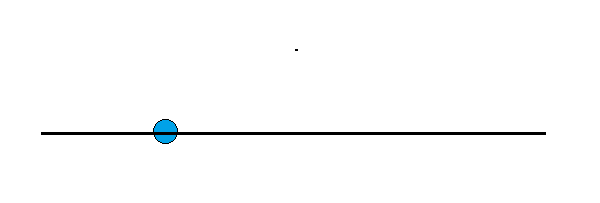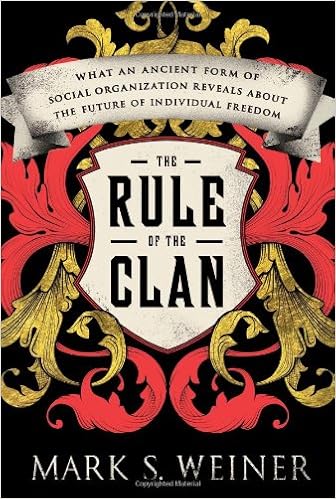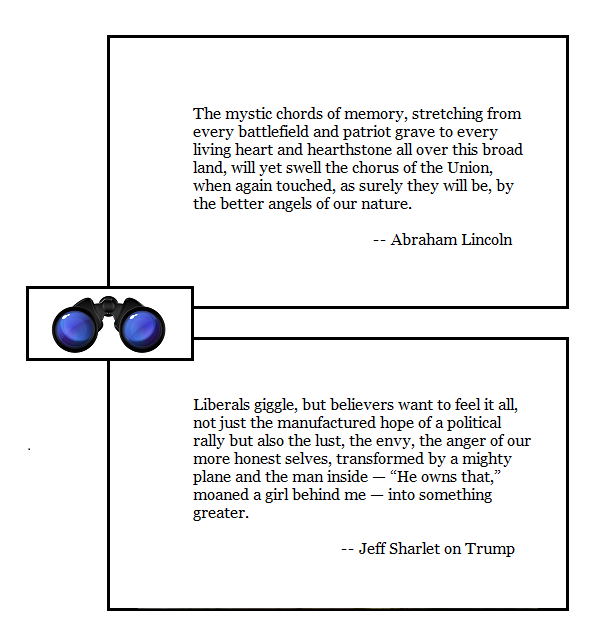[ by Charles Cameron — theo-ecology, with a side of spaghetti ]
.
First, a Nobel laureate makes a distinction that should be of interest to all who study war — as also to those who “ain’t gonna study war no more”. Lucy Hughes-Hallett begins a New Statesman book review titled Chernobyl and the ghosts of a nuclear past thus:
“This not a book on Chernobyl,” writes Svetlana Alexievich, “but on the world of Chernobyl.” It is not about what happened on 26 April 1986, when a nuclear reactor exploded near the border between Ukraine and Belarus. It is about an epoch that will last, like the radioactive material inside the reactor’s leaking ruin, for tens of thousands of years. Alexievich writes that, before the accident, “War was the yardstick of horror”, but at Chernobyl “the history of disasters began”.
If we are not approaching the Eve of Destruction, nor the Zombie Apocalypse, nor an outbreak of nuclear war or some abominable plague, nor the Islamic Qiyama nor the Christian Armageddon, nor the drowning of our major coastal cities nor rapid heat death of most or all human life on earth, and if we forgo the notions of the anthropocene age, or the impoending singularity, why then the distinction that we have left the age of war (as teh major concern of the human race) and entered the age of disaster may be of interest, taxonomically speaking.
But I understand that last paragraph contains a vast “if” encompassing a large range of “nors”.
**
Okay, getting back to what I hope is the positive side of the ledger while keeping an eye of the negative, A Western Soto Zen Buddhist Statement on the Climate Crisis just came out:
As Buddhists, our relationship with the earth is ancient. Shakyamuni Buddha, taunted by the demon king Mara under the Bodhi Tree before his enlightenment, remained steady in meditation. He reached down to touch the earth, and the earth responded: “I am your witness.” The earth was partner to the Buddha’s work; she is our partner, as we are hers.
From the Buddha’s time, our teachers have lived close to nature by choice, stepped lightly and mindfully on the earth, realizing that food, water, medicine, and life itself are gifts of nature.
The Japanese founders of Soto Zen Buddhism spoke with prophetic clarity about our responsibility to the planet and to all beings. In Bodaisatta Shishobo/The Bodhisattva’s Four Embracing Dharmas Dogen Zenji, the founder of Japanese Soto Zen, wrote:
To leave flowers to the wind, to leave birds to the seasons are the activity of dana/giving.
**
One particular concern of mine has to do with the impact of global warming on the heartlands of Islam, and Mecca in particular, as mentioned here in an NYT piece titled Deadly Heat Is Forecast in Persian Gulf by 2100:
The research raises the prospect of “severe consequences” for the hajj, the annual pilgrimage that draws roughly two million people to Mecca to pray outdoors from dawn to dusk. Should the hajj, which can occur at various times of the year, fall during summer’s height, “this necessary outdoor Muslim ritual is likely to become hazardous to human health,” the authors predicted.
Here’s another distinction worth pondering, this one drawn from the same NYT piece, quoting Erich M. Fischer of the Institute for Atmospheric and Climate Science at ETH Zurich:
Anyone can experience the fact that humidity plays a crucial role in this in the sauna. .. You can heat up a Finnish sauna up to 100 degrees Celsius since it is bone dry and the body efficiently cools down by excessive sweating even at ambient temperatures far higher than the body temperature. In a Turkish bath, on the other hand, with almost 100 percent relative humidity, you want to keep the temperatures well below 40 degrees Celsius since the body cannot get rid of the heat by sweating and starts to accumulate heat.
**
Staying with Islam, and parallel to the Zen declaration above, we have this Islamic Declaration on Global Climate Change. Section 2.8 reads:
In view of these considerations we affirm that our responsibility as Muslims is to act according to the example of the Prophet Muhammad (God’s peace and blessings be upon him) who –
Declared and protected the rights of all living beings, outlawed the custom of burying infant girls alive, prohibited killing living beings for sport, guided his companions to conserve water even in washing for prayer, forbade the felling of trees in the desert, ordered a man who had taken some nestlings from their nest to return them to their mother, and when he came upon a man who had lit a fire on an anthill, commanded, “Put it out, put it out!”;
Established inviolable zones (harams) around Makkah and Al-Madinah, within which native plants may not be felled or cut and wild animals may not be hunted or disturbed;
Established protected areas (himas) for the conservation and sustainable use of rangelands, plant cover and wildlife.
Lived a frugal life, free of excess, waste, and ostentation; Renewed and recycled his meagre possessions by repairing or giving them away;
Ate simple, healthy food, which only occasionally included meat;
Took delight in the created world; and
Was, in the words of the Qur’an, “a mercy to all beings.”
**
It is curious to find Walid Shoebat, a vigorously anti-Muslim Christian apologeticist, making some of the same points in a piece titled It Is Now Confirmed And Scientists Now Predict That Mecca Will Be Destroyed By Extreme Heat:
While many will cry “global warming”, it will actually be the sun heating up (Deut 28.23,24) (Zech 14.17). Another form of judgement prophesied by Isaiah appears to be extreme heat – heat severe enough to kill people:
‘Therefore … the inhabitants of the earth are burned, and few men are left’ (Isa 24.6)
The book of Revelation appears to speak of the same end time events and predicts extreme weather as part of God’s judgement upon the nations. There will be fierce, scorching heat:
‘The fourth angel poured out his bowl upon the sun, and it was given to it to scorch men with fire. Men were scorched with fierce heat …’ (Rev 16.8,9)
The Bible also predicted (as scientists now do) that Mecca will be “uninhabited”: “After her destruction, Babylon [Arabia] will merely be a home for demons, evil spirits, and scavenging desert creatures” (Revelation 18:1-2).
**
And finally, on a lighter note — sticking with religion, at least arguably, but definitely moving from science to science fiction, we have this (theological) ruling from a Nebraska federal district court in Cavanaugh v. Bartelt:
This is not a question of theology: it is a matter of basic reading comprehension. The FSM Gospel is plainly a work of satire, meant to entertain while making a pointed political statement. To read it as religious doctrine would be little different from grounding a “religious exercise” on any other work of fiction. A prisoner could just as easily read the works of Vonnegut or Heinlein and claim it as his holy book, and demand accommodation of Bokononism or the Church of All Worlds. 6 See, Kurt Vonnegut, Cat’s Cradle (Dell Publishing 1988) (1963); Robert A. Heinlein, Stranger in a Strange Land (Putnam Publ’g Grp. 1961). Of course, there are those who contend—and Cavanaugh is probably among them—that the Bible or the Koran are just as fictional as those books. It is not always an easy line to draw. But there must be a line beyond which a practice is not “religious” simply because a plaintiff labels it as such. The Court concludes that FSMism is on the far side of that line.
And may the force be with you — or what’s a metaphor?





